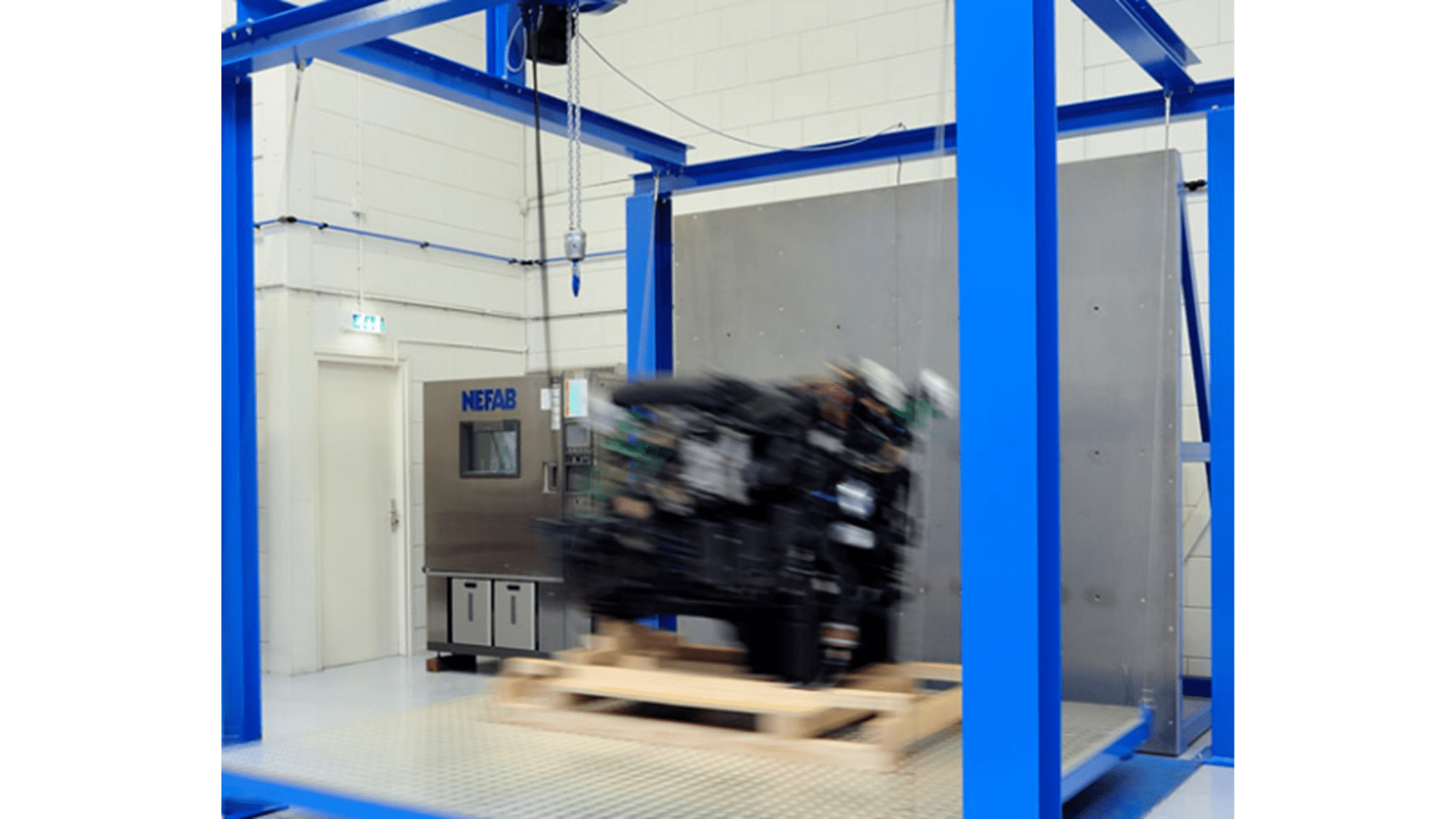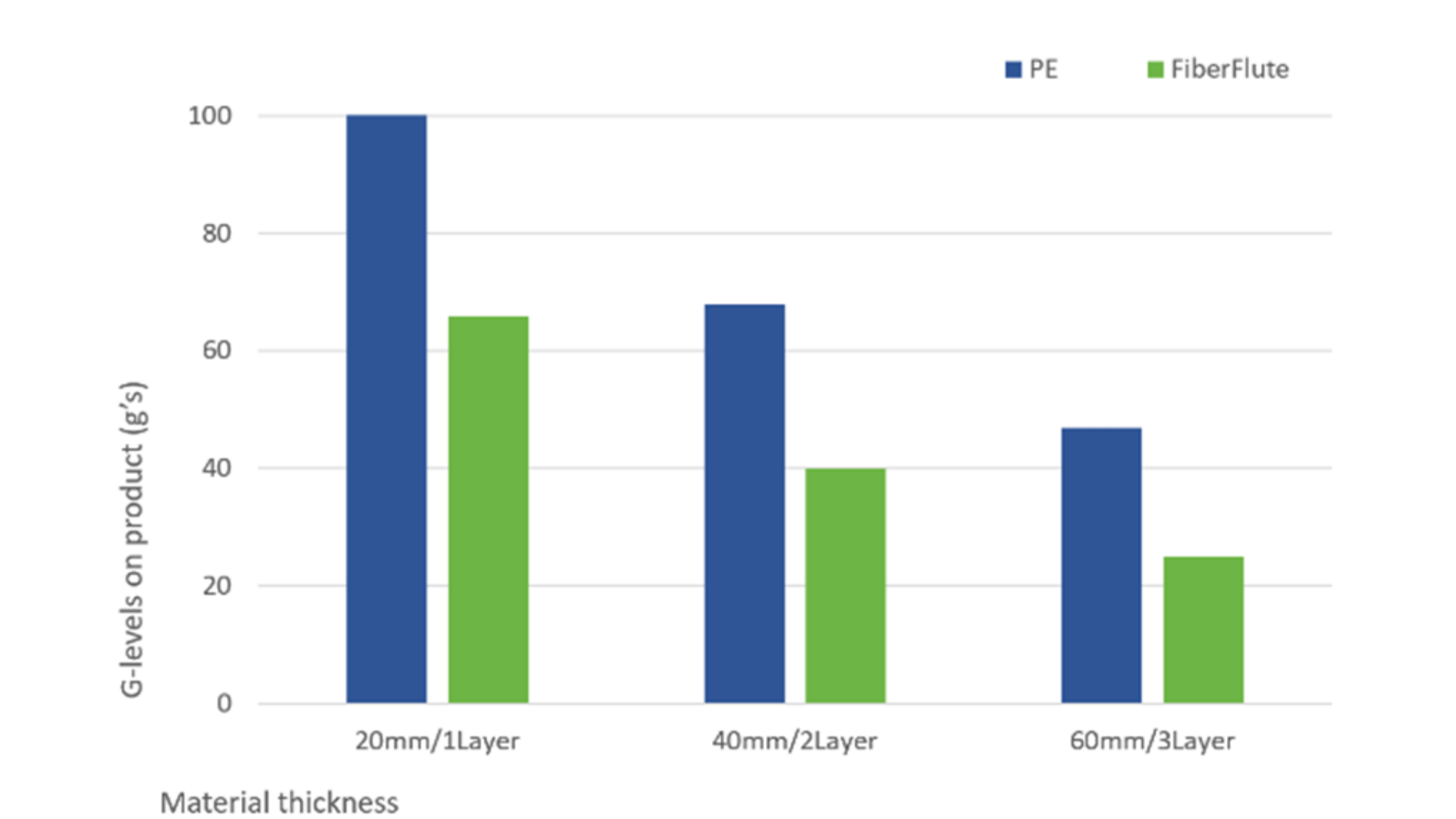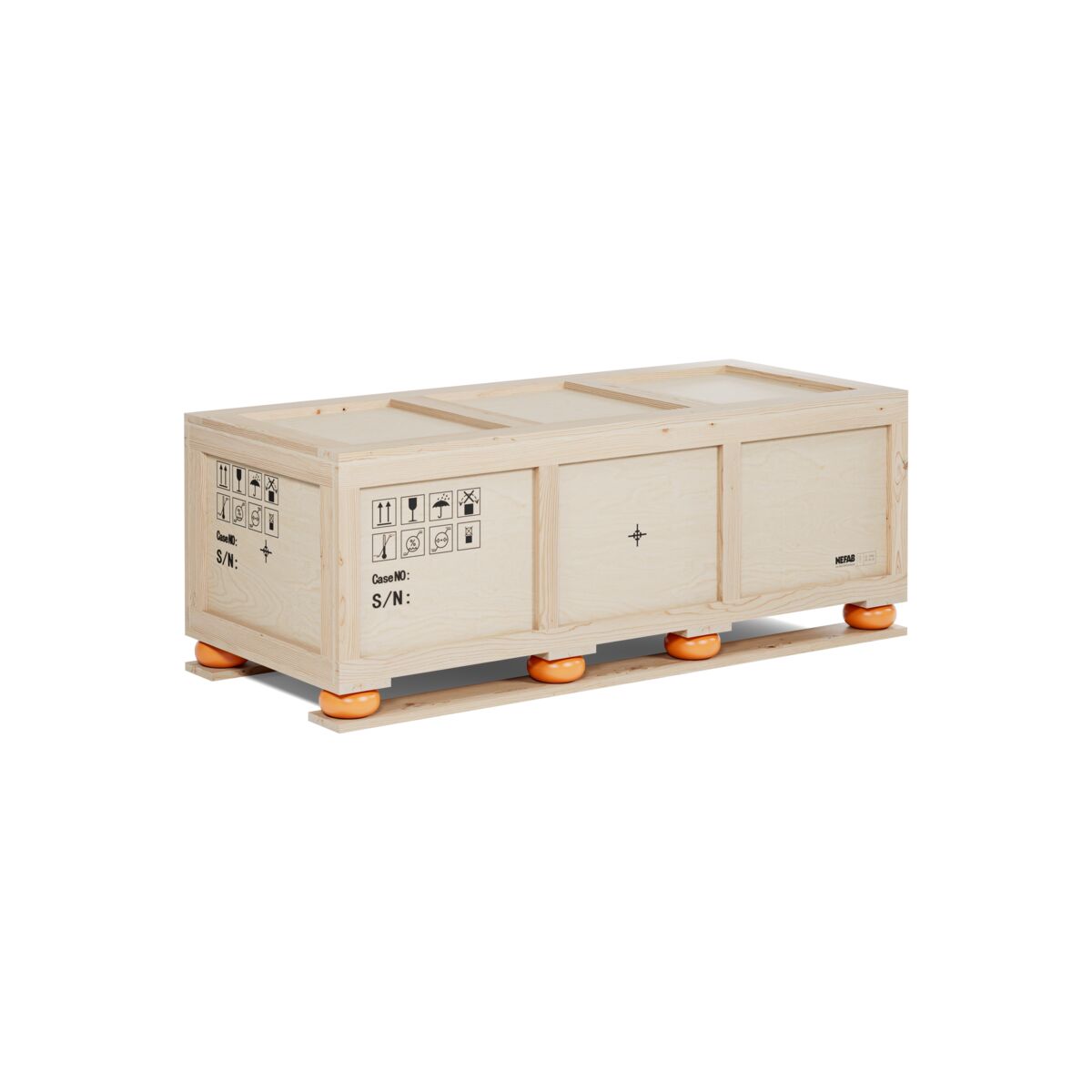Summation
- Nefab has become a premium provider of packaging and logistics solutions across the healthcare industry due to robust engineering expertise, global presence, ISTA certified test labs, commitment to global quality standards, sustainability assessments, and comprehensive logistics services and optimization programs.
- Continue reading to hear more from Nefab's Global Healthcare Segment Director, Lise-Anais Swiegot, about key challenges, and opportunities for the healthcare industry, as well as how Nefab can help your company thrive in the current and future logistical landscape.
- based Healthcare company manufacturing a diagnostic device in Europe and shipping it globally, Nefab saw the opportunity to deliver more than just a packaging solution.
The global medical device market size is projected to increase from 673 billion USD in 2024 to 800 billion USD by 2030.[1] This nearly fifty percent growth can be attributed to several factors, including the rising prevalence of an aging population, expanding populations in developing countries, and the lessons learned from the COVID-19 pandemic. These factors underscore the need for continued investment in healthcare services on a global scale.
Such changes impact the entire healthcare industry, particularly affecting healthcare equipment manufacturers. They are facing rising complications due to damaged and delayed parts, which postpone the final installation. This has caused many industry leaders to view the supply chain as less transactional and more strategic.[2] They are recognizing the need for sustainable supply chains and logistics operations to respond to the current challenges of today and prepare for the future challenges of tomorrow, while keeping costs under control.
For over 75 years, Nefab has been a global industrial packaging provider, delivering tailored transportation and logistics solutions to customers in 38 countries. Originating from Sweden, Nefab has expanded to employ over 4,700 individuals, including more than 250 engineers worldwide. Nefab has become a premium provider of packaging and logistics solutions across the healthcare industry due to robust engineering expertise, global presence, ISTA certified test labs, commitment to global quality standards, sustainability assessments, and comprehensive logistics services and optimization programs. This combination allows the offering of tailored and reliable solutions that meet the demanding requirements of the healthcare industry efficiently and sustainably.
Nefab has successfully supported numerous healthcare industry leaders in achieving cost savings, reducing waste and CO2-eq emissions, and enhancing process efficiency through a range of innovative offerings. Continue reading to hear more from Nefab’s Global Healthcare Segment Director, Lise-Anais Swiegot, about key challenges, and opportunities for the healthcare industry, as well as how Nefab can help your company thrive in the current and future logistical landscape.
GLOBAL FOOTPRINT TO ENSURE CONSISTENT QUALITY WORLDWIDE
Healthcare equipment is frequently characterized by its sensitivity, high value, and complexity, necessitating top-quality packaging to safeguard such delicate instruments. Packing solutions for healthcare equipment must balance quality and cost considerations while minimizing waste and environmental impact. Additionally, addressing supply chain challenges, especially in serving hospitals and clinics, is crucial as it directly influences the design and quality of the packaging.
Nefab operates over 100 sites in 38 countries, supported by six ISTA-certified test labs. This extensive global footprint enables consistent levels of service worldwide, ensuring that packaging and delivery receive the same meticulous attention and care regardless of location. Our global presence fosters seamless large-scale collaboration to uphold the highest standards of product and service quality, which is especially critical when transporting a diverse range of medical devices, from compact diagnostic tools to heavy-duty MRI machines.
The complexity of healthcare equipment calls for added testing and quality certifications, such as ISO. Fortunately, Nefab possesses extensive expertise and qualifications in global quality systems and standards. “Through ISO certification and fully ISTA certified labs, you can validate healthcare packaging solutions in line with specific requirements and global regulations,” explained Lise-Anais. This ensures that sensitive and complex products benefit from uniform levels of protection and safety assurance, which Nefab delivers on a global scale.

By following ISTA testing standards and industry requirements, healthcare equipment manufacturers ensure their packaging solution complies with all relevant standards and regulations.
CUSTOMER CASE ON FIBERFLUTE
At Nefab, the solutions go beyond cost savings for customers to encompass minimizing CO2-eq emissions and reducing waste. When approached by a leading U.S. based Healthcare company manufacturing a diagnostic device in Europe and shipping it globally, Nefab saw the opportunity to deliver more than just a packaging solution. The customer was looking for a cost-effective packaging solution due to high damage rates in shipping. They contacted Nefab to develop a sustainable packaging solution that would offer better protection and reduce packaging costs. The team at the local Nefab plant near their manufacturing site developed a solution that replaced the current foam cushioning with FiberFlute. The result was a 33% reduction in materials, a reduction in CO2-eq emissions by over 200 metric tons/yr., and better pallet utilization which reduced shipping costs, with an overall cost savings of 60%.
ENHANCED TRACK AND TRACE TECHNOLOGY TO IMPROVE SUPPLY CHAIN VISIBILITY
Recent times have highlighted the critical need for healthcare equipment manufacturers to plan for unforeseen circumstances that can lead to manufacturing downturns, shortages, and delivery delays. This is particularly crucial for life-saving equipment, which must be delivered on time to enable medical staff to provide essential care to patients. As a solution, more and more industry leaders are adopting the integration of track and trace devices and logistics solutions.
Nefab remains competitive in this area with its Digital Service offerings and Installation Management Services (IMS). “Based on our calculations, using connected flows can help reduce costs and increase healthcare supply chain efficiency as well as responsiveness by up to 40% lead time,” explained Lise-Anais. Nefab offers a variety of digital solutions under the Digital Services umbrella. Such devices can provide real-time insights on location, handling data regarding potential tilts and temperatures, and can be easily and instantaneously viewed in a user-friendly dashboard. Stakeholders can then be immediately notified of any damages or delays via text message or email.
Several customers of the Healthcare segment have also benefitted from the use of Nefab’s IMS, which integrates planning and technology in an innovative approach to provide “first-time-right” installations. The IMS kit is designed to ensure a seamless final delivery. It includes detailed packing instructions, load plans, site plans, and a connectivity service for reporting shortages, guaranteeing all parts are delivered on time and undamaged. Additionally, IMS services address challenges related to non-standardization in medical device communication protocols, simplifying the connection of devices from different vendors.
Using connected flows can help reduce costs and increase healthcare supply chain efficiency by up to 40% lead time.

SUSTIANABILITY FOCUS: INNOVATION & CO2-eq REDUCTION
Extensive regulations and lengthy approval processes make it increasingly difficult to design innovative yet sustainable packaging solutions for healthcare equipment. However, material waste and costs can be effectively minimized by adopting a range of attractive packaging alternatives. “We have seen companies reducing their CO2-eq emissions significantly simply by switching to alternative packaging materials”, commented Lise-Anais. These include easily recyclable and lightweight fiber-based solutions, as well as highly durable constructions made from straw.
Nefab offers a range of fiber-based solutions that enable healthcare companies to achieve cost savings and reduce their environmental footprint. FiberFlute, made from 100% recycled paper, serves as a sustainable alternative to PE foam, delivering outstanding cushioning performance. The EdgePak Straw is an innovative fiber-based solution, combining strawboard foldable corners with cardboard. It provides incredible stacking strength with minimal environmental impact. Additionally, Heavy Duty Corrugated solutions have gained traction within the healthcare segment as an alternative to heavy crates. They are customizable to support large and/or heavy sensitive products and can be reused as needed.

The comparative analysis between polyethylene foam (30kg/m3) and fiber-based cushioning solutions proved that the fiber-based alternative offers same protection while using less material and being more environmentally-friendly.[3]
Returnable packaging systems are gaining popularity in the healthcare equipment industry as logistics flows evolve. Transitioning from one-way packaging to reusable alternatives not only makes financial sense, but also supports closed-loop flows between a limited number of distribution points. “If the packaging completes at least four cycles per year, the investment into a returnable system already pays off,” explained Lise-Anais. After use, the packaging can collapse for efficient return shipment in flat form or can even be utilized for returning broken or unused parts.
Nefab’s Returnable Packaging Solutions are often a combination of white coated plywood and regular lumber, with customizable interior features, detachable panels, sizes, finishes, and labelling/branding.

COMPREHENSIVE PACKAGING & LOGISTICS SOLUTIONS
Recent events have positioned medical device manufacturers at a critical juncture in the supply chain evolution. Partnering with the right packaging and logistics provider is essential to save time, costs, and resources, while optimizing logistics processes and enhancing visibility throughout the supply chain. This is especially advantageous for global healthcare industry players who seek consistent service across all regions through a single point of contact. Nefab is dedicated to assisting customers in enhancing process efficiency by ensuring that the correct products arrive at the right time and place, in pristine condition.
“The healthcare manufacturing industry is currently running at a full steam. Safely transporting healthcare equipment is crucial to saving lives, which is why manufacturers demand reliable and quality-driven sustainable packaging solutions and logistics services. The evolution into more agile, digital and circular supply chains presents a challenge, but it can be accomplished if all stakeholders collaborate, “ summarized Lise-Anais.
We save resources in supply chains, for a better tomorrow.
[1] https://www.fortunebusinessinsights.com/industry-reports/medical-devices-market-100085
[2] Optimizing the healthcare supply chain | McKinsey
[3] https://www.nefab.com/en/solutions/packaging-solutions/inner-packaging/recyclable-packaging-fiberflute/


